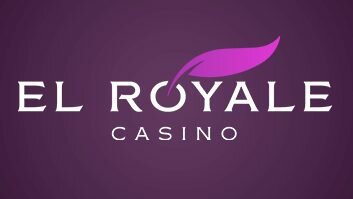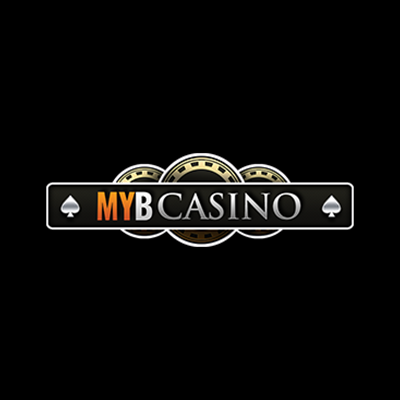California is home to one of the most expansive casino offerings across the United States. While the types of casinos in California vary greatly, you will be able to find them up and down the state, whether you are near the border to Mexico, Canada, or anywhere in between. Many of the casinos in California are not similar to what you would find in a city like Las Vegas. Instead of mega-resorts, the majority of these casinos are instead small, and often times they won’t have any machine games whatsoever. A new casino seems to be popping up each year within the state, and California promises to build on its already growing presence in the gaming industry.
Top Rated US Casino Sites
| Casino | Bonus | Play | Review | Games | Deposit | Device | Rating | |
|---|---|---|---|---|---|---|---|---|
| 1 |  |
Up to USD5,000 Welcome Bonus | Visit Casino | Read Review | Slots, Table Games, Bingo, Poker 24/7 | Visa, Mastercard, Bitcoin, Neosurf | Mobile, Desktop | 90 |
| 2 |  |
Free (No deposit required) | Visit Casino | Read Review | Slots, Table Games, Mobile Compatible | Visa, Mastercard, Bitcoin, Neosurf | Mobile, Desktop | 100 |
| 3 |  |
280% Welcome Offer | Visit Casino | Read Review | Slots, Table Games, Mobile Compatible | Visa, Mastercard, Bitcoin, Neosurf | Mobile, Desktop | 80 |
| 4 |  |
250% Deposit Match + 50 Free Spins | Visit Casino | Read Review | Live Dealer, Slots, Table Games | Visa, Mastercard, Bitcoin, Neosurf | Mobile, Desktop | 100 |
| 5 |  |
200% up to 1,000 USD Welcome Bonus | Visit Casino | Read Review | Live Casino Games, Mobile Compatible | Visa, Mastercard, Bitcoin, Neosurf | Mobile, Desktop | 90 |
| 6 |  |
100% up to 1,000 USD First Deposit Bonus | Visit Casino | Read Review | Slots, Table Games, Mobile Compatible | Visa, Mastercard, Bitcoin, Neosurf | Mobile, Desktop | 80 |
| 7 |  |
200% up to 1,000 USD Welcome Bonus | Visit Casino | Read Review | Slots, Table Games, Poker 24/7 | Visa, Mastercard, Bitcoin | Mobile, Desktop | 100 |
| 8 |  |
0 Poker Bonus, 3,000 USD Casino Bonus, & 0 Sportsbook Bonus | Visit Casino | Read Review | Poker, Casino, Sportsbook | Visa, Mastercard, Bitcoin, Crypto | Mobile, Desktop | 90 |
California Online Casinos
State-level regulations are rather permissive in California – participating in illegal gambling as a player is considered a misdemeanor and there are no laws criminalizing the act of playing real money games online. Consequently, local gamblers don’t have to worry about being prosecuted if they decide to join an offshore
 Internet casino, sportsbook or poker site.
Internet casino, sportsbook or poker site.
However, it’s worth pointing out that many counties have their own local gambling-related regulations, so if you want to stay perfectly safe, you should familiarize yourself with those regulations before you take your hobby online.
Choosing a quality site isn’t as hard as it seems – in most cases going for reputable, high-traffic sites are guaranteed to get the best results regardless of the form of gambling that you’d like to try. For example, poker rooms that receive a lot of traffic offer better cash games and higher tournament prizes. Popular casinos, on the other hand, are able to afford more lucrative welcome bonuses, while popular sportsbooks tend to have better prices, event coverage and, in some cases, reduced juice promotions.
California Online Gambling Laws
Contrary to popular belief, on a federal level, there are no laws that prohibit you from participating in legally licensed online gaming websites. In fact, the United States Department of Justice has previously stated that each individual state possesses the authority to determine their own legislation as it pertains to both land and online gambling.
There are two important pieces of legislation that have dictated the federal government’s stance on online gaming, and how online casinos operate and circumnavigate certain gray areas.
The first relates to sports betting. The Federal Wire Act of 1961 bans wire communications to be used to place a bet on a sporting event or contest. Up until now, the federal government was including bets on “games of chance” such as online casino games and poker under this law. The Department of Justice released their formal opinion stating that the law only applies to wire communications pertaining to a “sporting event or contest”, thus not including online casino games or poker in their publicly released opinion.
The second relates to how online casinos process transactions. The Unlawful Internet Gambling Enforcement Act of 2006 made it illegal for banks to process transactions associated with online gaming. This does not pertain to any transaction made by players, such as deposits, but it merely prohibits banks and payment services from processing withdrawals and deposits from online gaming sites. You’ll see several online casinos operating today, but many are based offshore so that are not subject to this law.
To date, only Delaware, Nevada, New Jersey and Pennsylvania have officially legalized and determined a system to regulate online gambling. One important factor requires that you reside in one of these states to be able to participate in their state-regulated online casinos and poker rooms.
Many states are aiming to follow the precedent set by Delaware, Nevada, and New Jersey, including California. California is the largest state with a population of over 39 million and is a very important market for gambling operators.
California Online Gambling
There are no written laws in the state of California that forbid or officially regulate online gambling. You will not be prosecuted for any crimes, so long as you meet the age requirement, which is 21 years of age.
For years now the state has struggled to pass official legislation to regulate web-based gaming. Many of the state’s legislators are in favor of regulation, but continue to struggle to find common ground. In 2013, the state introduced California Senate Bill 51. It aims to authorize intrastate online gaming, including internet poker, through licensed websites.
The Authorization and Regulation of Internet Poker and Consumer Protection Act of 2013 has also been introduced to state legislators. It essentially mandates players to be 21 years of age to play online poker, and provides financial safeguards for online players.
Years later, Assemblyman Adam Gray introduced bill AB 2863 that passed through the Assembly Appropriation Committee. The bill’s aim to legalize and regulate online poker in the state. There have been several points of contention that have come up as many feel the fines in place are too small and should be increased. However, the bill did receive the approval from the Poker Players Alliance.
The Internet Poker Consumer Protection Act of 2013 would legally permit gaming operators of California reservation casinos and commercial card rooms to offer online poker to state residents and visitors physically present in California during their poker session. The bill was approved by eight California Indian tribes and would require the state to opt out of any future legislation pertaining to online gambling passed by the federal government.
As previously indicated, there are still no fully enacted laws establishing official regulations of online gaming and poker, but you can see that the topic is one that has caused much debate for years. Many gaming operators and players are closely monitoring the aforementioned bills and future proposals to see what the outcome will be for the state and how it will impact the state’s gaming industry.
Until a solution is present, many players utilize online gaming sites that accept U.S. based players such as Bovada, Slots.lv, Ignition Casino, and Café Casino for online gaming.
Sports betting is viewed differently by the federal government and currently, it is illegal in the state of California. In fact, only Nevada, Delaware, Montana, and Oregon are exempt from federal laws related to online sports betting. Many California players flock to sportsbooks on sites such as Bovada, BetOnline, Sportsbetting.ag, and BookMaker.eu as these sites operate offshore.
For a full reference to online casinos that accept U.S. players, you can visit our online casino page.
California Gaming Operators
There are three major groups voicing their concerns and interests with respect to regulation with online gambling and poker: Native Americans, card rooms, and racetracks.
Historically, gambling has provided viable employment and valuable revenue for Native American tribes that operate casinos. For years Native Americans have argued that the Indian Gaming Regulatory Act (IGRA) exempts tribes from obeying the Unlawful Internet Gambling Enforcement Act (UIEGA) as they are operating as sovereign tribes.
In 2014, a federal judge shut down the Iipay Nation of Santa Ysabel’s (a California tribe) online bingo and poker site stating that the UIGEA superseded the IGRA, and deemed online gaming casinos illegal in California. Thus, further complicating the current state of online gaming in California, and contributing to the many gray areas and flaws in the current system.
Commercial card rooms are allowed in California, as long as they comply with the state’s regulations and laws and obtain a valid state gambling license. All controlled games such as pai-gow and poker, and jackpots, bonuses, tournaments must be approved by the Bureau of of Gambling Control. They also must comply with any local ordinances. One key difference between card rooms and Vegas-style casinos is, California card rooms charge players a fee to play and card rooms earn revenue from those fees.
Card rooms not only have to adhere to specific guidelines for their land-based gambling operations, they are competing to maintain a stake in the future regulation of web-based gambling to put themselves in position to benefit from any future laws and not lose any stake in the gaming industry to competitors such as Native American tribes.
Many of the state’s racetracks are also attempting to claim a stake in online regulation, particularly online poker, as they recognize the importance of the online market. At least one piece of legislation to date has demanded the inclusion of the state’s racetracks. If the state passes any law that does not allow racetracks to operate online gaming and poker, they would like to be compensated as a result of not being included.
California Play Money Casinos
Play money online casinos are casinos that offer slot machine games, table games and poker games utilizing “play money chips. Sometimes sites ask that you purchase additional play money chips to access certain games or to unlock particular aspects of an individual game. Play money sites offer a free-play experience for those looking to practice or enjoy the thrill of gaming without the risk of real money. There are no cash-outs available for wins.
There are a handful of California casinos that offer play money gaming on their websites.
Harrah’s Resort Southern California: Harrah’s has a physical location in Valley Center, CA, and also offers play money gaming on their website. Part of Caesars Entertainment, Harrah’s website allows players to earn credits by playing poker, slots, and bingo.
Hollywood Casino Jamul-San Diego: The Hollywood Casino in San Diego offers players online slots, free, with play money on their website. You can choose from classic reel slots and newer online slots, and you can move up various levels depending on the number of credits you earn to unlock different games.
San Manuel Casino: The San Manuel Casino is owned and operated by the San Manuel Band of Mission Indians, a Californian Native American tribe in San Bernardino County. Their website offers play money gaming for slots, table games, poker, and bingo. They host various tournaments and have a play money loyalty program where you can gain access to exclusive games and new releases.
The Future of California Online Gambling
As each election year passes, California continues to be at a standstill in terms of approving legislation and acquiring the necessary amount of votes to enact online gambling regulation. There are several companies and tribes with invested interest such as Commerce, The Bicycle, Hawaiian Gardens Casino, The San Manuel Band of Mission Indians, and The Morongo Band of Mission Indians.
The tribal casinos possess tremendous leverage and influence and mostly oppose a state-regulated system for online gaming. Card rooms are working towards representing their interests in future legislation, while racetracks seek inclusion or compensation for exclusion. Until an agreement is met, California residents do have several options for live play and are encouraged to look for online casinos accepting U.S players. For a list of live play casinos in California, visit our casino guide here.
California Casinos
Bay 101
Cache Creek Casino Resort
Capitol Casino Sacramento
Commerce
The Gardens
Harrah’s Resort Southern California
Hollywood Park
Hustler
Lucky Chances
M8trix
San Manuel
Gambling in California
With its proximity to Las Vegas and the rest of Nevada’s casinos, one might think that California relies on its neighbor to the east for its casino and gambling needs. However, that is not the case.
California is pretty much on par with states like New Jersey or New York when it comes to land-based gambling-related regulations. The local landscape is packed with tribal casinos – and if that wasn’t enough, California-based poker enthusiasts have plenty of quality card rooms to choose from. Pari-mutuel horse race wagering is also available.
Other than that, California allows live bingo and has a state-operated lottery. The Golden State legislators are still working on new iGaming-friendly regulations, so for the time being local gambling enthusiasts have to stick to offshore sites if they want to play their favorite games online.
The Golden State is home to 69 casinos operated by more than 60 federally recognized Native American tribes. Commercial casinos located off tribal land are illegal, but considering the number of tribal casinos as well as the size and quality of many of them, there is no need for further competition.
The San Manuel Casino in Highland (60 minutes east of Los Angeles) is the largest casino in California and the fourth largest in the United States, with 220,000 square feet of gaming space, 4,200 slot machines, more than 100 table games, and a 32-table poker room open 24/7.
There is a large concentration of casinos in Southern California, with more than 20 in the Riverside, San Bernardino, and San Diego counties. Other casinos stretch all the way north, such as the Lucky 7 Casino in Smith River just two miles south of the Oregon border.
The state also offers numerous card rooms, some of which are best described as “almost casinos” – such as the Commerce Casino in Los Angeles. Many of these card rooms host table games like blackjack, pai gow, and baccarat, as well as poker rooms. The only aspect that sets them apart from “real” casinos is that they aren’t allowed to host slot machines.
Because of a quirk in the law, craps and roulette games are not allowed at any casino. However, some establishments get around this prohibition by using a deck of cards to mimic the odds of craps and roulette as well as the dice rolls and spins of the ball.
The minimum age for casino gambling in California is 18, but to play at casinos that serve alcohol, you must be at least 21.
Online casinos remain illegal.
Types of Casinos in California
There are two, for all intents and purposes, types of casinos that you will find in California. The most common casino will be what many call a card room. These casinos generally offer a few table game variants, namely blackjack, baccarat, and pai gow, with many of them also offering poker. Some of the card room casinos are known primarily for their poker, while others will only manage to get a few low limit poker games going even on their best days. The majority of the card rooms in California tend to be frequented most often by locals in the area. These are not destination resorts, though there are other casinos in CA that do offer hotels and provide accommodations for those looking to make a vacation out of their trip.
Differences Between California Card Rooms and Tribal Casinos
The second type of casino is what the average gambler will be much more accustomed to. Casinos on Native American lands within California offer much more than you will ever find in the card room casinos scattered throughout the state. These locations offer everything, including, but not limited to, slots, video poker, blackjack, roulette, and all other popular table games.
In California, there are a few different forms of legal gambling. They include card rooms, Native American casinos, the California State lottery, pari-mutuel wagering on horse racing, and charitable gaming. While each of these vies for legal market share there are two that directly compete against one another for a lot of the same players – card rooms and Native American casinos.
California Tribal Casinos

In February of 1987, the United States Supreme Court ruled that neither the State of California nor Riverside county in California could regulate bingo and card games operations of the Cabazon Band of Mission Indians and Morongo Band of Cahuilla Mission Indians. They may not have realized it at the time but this court decision often referred to as the Cabazon decision, led to several federal and state legislative acts that caused tribal casino operations to expand. Today, there are nearly 70 tribal casinos in the state of California.
Indian tribes possess tribal sovereignty due to supreme court decisions in 1831 and 1832 that determined tribes were “independent political communities” with “original natural rights”. As a result of tribal sovereignty tribal activities (including casinos) are generally limited to rule under certain federal laws and federally approved agreements between tribes and state.
In response to the Cabazon decision, Congress passed the Indian Gaming Regulatory Act (IGRA) in 1988, which outlined the kinds of games tribal casinos could offer and provided the additional legal framework, in which both the tribes and the United States government could use to regulate and operate moving forward. In the year 2000, the state passed Proposition 1A which enabled the governor of California to negotiate agreements with recognized tribes on Native American land to operate slot machines, lotteries, and card games. This modified the state’s Constitution and fully authorized tribal casinos.
After Proposition 1A passed in 2000 each tribe was able to negotiate their compact with the state. Under the agreements between California and its Native American tribes, tribes pay several state government accounts, select state, and local taxes, and select local government accounts.
The Bureau of Gambling Control, the California Gambling Control Commission, and the California Tribal Gaming Agencies (TGA) work hand-in-hand to ensure tribal casinos abide by all gambling regulations in accordance with the IGRA.
Pechanga Resort & Casino
Pechanga Resort & Casino is owned and operated by the Pechanga Band of Luiseño Indians, a Native American tribe in California. It first opened in 2002 and is the largest resort/casino in California and one of the largest in the entire country.
The casino floor is approximately 188,000 square feet, which is larger than the MGM Grand in Las Vegas, NV (156,023 square feet). It offers 3,400 slot machines, over 130 table, and poker games, bingo, off-track betting, over 500 hotel rooms including suite options, a spa, several dining choices, and more.
It is located in the Temecula Valley in Riverside County, just north of San Diego and is easily the valley’s number one employer with over 4,000 employees.
It is difficult to compare Pechanga Resort & Casino with card rooms in the area and the state of California in general. Pechanga possesses more gaming variety, excellent facilities, attractions, entertainment, and is physically larger. The hotel plans to finalize and open expansion that broke ground in 2015, which will add even more to this impressive resort & casino.
California Card Rooms

California state law dictates that gambling establishment obtain and maintain a valid state gambling license, which is overseen by The Bureau of Gambling Control. Card rooms are no exception. Each induvial game, all gaming activities, and work permits must also be approved by the Bureau.
Card rooms in California were initially set up to primarily offer games such as Texas Hold’em and variations of Omaha or player vs. player games.
However, over the last 30 plus years card rooms developed variations of games to be able to offer different card games and still abide by California law which bans card rooms from offering games in which they have a stake in.
Card rooms now offer Pai Gow Poker, California 21 (better known as No Bust Blackjack), Blackjack, and many others as “player-banked games”. By classifying the games as a player-banked and altering the game requirements ever so slightly, card rooms are able to circumnavigate the inability to offer games they possess a stake in and thus offer player vs. house games but in a different format.
Commerce
Commerce Casino is located in Los Angeles, CA in the city’s suburb of Commerce. It is not only the largest card room in the state but the world. It first opened in 1983 and includes a Crowne Plaza Hotel directly attached, with a day spa, beauty salon, pool and sundeck, and several dining and entertainment options.
Commerce is by far most known for poker. It can be argued that it is the most active poker room in the world. Nevertheless, Commerce offers other games including EZ Baccarat, Pai Gow Poker, Casino War, Blackjack, and more.
The casino sets a pretty high standard when it comes to card rooms and poker in the state of California. For a full review head, over to our review page, here.
Native American vs Other Casinos
The primary difference between Native American casinos and the other casinos in California is their ability to offer machine games, as well as roulette and craps. There is a catch, however, as there are no dice or balls allowed to be used in California casinos. To circumvent this rule, the casinos that offer craps and roulette administer the games with playing cards. Instead of a ball spinning on the roulette table, the croupier will spin the roulette wheel and it will slap all of the playing cards. Your bet is placed by picking the card in which you think it will stop on. The card is then pulled and the winner is revealed.
The excitement of this form of roulette is certainly less than that of the traditional game, but it is popular nonetheless. In craps, the game is again played with cards in lieu of dice. Cards are turned over to reveal the next “roll,” and the game plays accordingly. Generally speaking, the roulette games in California are more similar to regular casino games, while craps plays very differently, in terms of both pace and game action.
Table Game Fees
If you play in a card room, and then visit a Native American casino, you will notice a striking (and financially damaging) difference. The card rooms charge fees for their games. Usually, the fee is around $1 per $100 wager. This means a $25 and $100 blackjack bet would both be subject to a $1 fee. If you bet $200, the fee would be $2, and so on and so forth. Needless to say, these added fees make the games quite difficult to beat, as you are effectively doubling the house edge in many instances.
The card rooms that charge this fee do so because this is their only means of revenue. The card rooms hire outside companies (known as “The Corporation”) to handle all wagers and risks. Since the room does not benefit from any of your potential losses, they only stand to profit based on your wager size and length of play. If you visit a Native American casino, however, these fees do not exist.
California Sportsbooks & Sports betting
California is taking the necessary steps to bring legal sports betting to the state. A referendum for a constitutional amendment is gaining steam and the necessary signatures, but it likely won’t appear before voters until 2025. If Californians approve the change, the legislature will then need to pass with supermajorities in both houses.
The Native American tribes that operate the state’s casinos present the biggest roadblock to possible legalization.
Steve Stallings, chairman of the California Nations Indian Game Association, commented on the measure, “California voters have, on numerous occasions, confirmed the exclusive right of California tribal governments to operate casino-style games. Legalization of sports betting should not become a backdoor way to infringe upon exclusivity.”
Tribal exclusivity or not, sports betting is currently illegal in California.
Fantasy sports gambling and eSports
The legality of daily fantasy sports has had a rocky history in California.
The good: The California Assembly was the first legislative body in America to approve a bill legalizing and regulating daily fantasy sports, which passed by an overwhelming 62-1 vote.
The bad: The California Senate never took up the bill and killed it before it ever became law.
As a result, DFS is not yet legal in California. However, all DFS sites are in the state and signing up California customers under the belief that DFS requires skill and thus does not constitute gambling.
It’s unclear if and when new DFS legislation will be introduced.
The eSports industry is huge in California, but as of yet, legal wagering on outcomes is not available.
Animal racing
California is one of the largest live horse racing hubs in America.
Along with racing at fairs throughout the state, you can see thoroughbreds, Quarter Horses, and harness racing at the following venues:
-
Santa Anita Park (Arcadia): Thoroughbred meets from December to June and September to November
-
Del Mar (Del Mar): Thoroughbred meets from July to early September and late September to December
-
Los Alamitos (Cypress): Thoroughbred meets in June, July, and December, and Quarter Horse meets year-round
-
Golden Gate Fields (Berkeley): Thoroughbred meets from January to June and August to December
-
Cal-Expo (Sacramento): Harness meets from December to May and October to December
Along with the off-track wagering options at the above racecourses, the California Horse Racing Board lists 27 other simulcast locations throughout the state.
You must be 18 to place a pari-mutuel wager in California.
There is no greyhound racing in the state.
California Poker Games
As mentioned, California is home to numerous legal poker rooms. The California Bureau of Gambling Control lists 72 legal card rooms operating in the state, grouping them by region and county to make it easy to locate a poker room near you.
Most poker rooms require players to be at least 18. If alcohol is served, the age requirement is 21.
Lottery
The California Lottery has been around since 1985. Along with scratch-off tickets, you can play the following draw games:
-
Hot Spot
-
Daily Derby
-
Daily 3
-
Daily 4
-
Fantasy 5
-
SuperLotto Plus
-
Mega Millions (multi-state)
-
Powerball (multi-state)
You must be at least 18 years old to purchase a California Lottery ticket. All prizes of $600 or more are subject to taxation.
Bingo
While almost all of the tribal casinos in California began as bingo halls, most have closed their bingo operations in favor of the more profitable table games and slot machines allowed by their Class III gaming license. However, 20 tribal casinos still host large bingo games at their facilities.
Charitable gaming laws in California allow qualified non-profit organizations to host bingo games and poker nights for fundraising purposes. Registration costs $100, and the games are restricted to players 21 years and older.
You can find legal bingo halls in more than 150 cities in California.
History of California Casinos
Card rooms aside, the greater casinos in California first came to fruition in 2000. Each of the non-card room casinos that you visit today made agreements with the state, and their deals are independent. While there is no shortage of Native American casinos, there are some areas where the competition is much less than others. Within the large state, you may travel for two hours and only see one casino, or you may travel 10 minutes and see several, as is the case near Rincon, California, where Harrah’s, Pechanga, Pauma, Valley View, and Pala casinos can all be found within a few minutes of each other.
In addition to card rooms and casinos in California, the state also has a number of horse racing tracks. California is not regarded as a premier destination for horse racing, though Southern California and the Bay Area do have a handful of well-known tracks, including Golden Gate Fields near San Francisco and Santa Anita in the Los Angeles area. These tracks also offer pari-mutuel wagering, and bets can be placed on these races from destinations around the world.
An interesting, and often times surprising, note about California casinos is found in their alcohol offerings. While patrons must be 21 to drink, everyone must pay. The state does not allow free drinks for gamblers, whether you are playing small stakes or high stakes. In addition, guests are not allowed to use their earned comp dollars on alcohol. This is a rule that many new California gamblers find surprising, especially if they have previously visited casinos in other parts of the country, like Atlantic City or Las Vegas.
General Rules
– In California, you must be 21 years of age to gamble at casinos
– In California, you must also be 21 years of age to drink alcohol at casinos
– Smoking availability is dependent on the casino itself, with some offering designated smoking areas
– Alcohol is never comped in California, for play or via the use of comps
California Online Gambling FAQ
How Do I Get Started?
You don’t have to be present in California in order to create an offshore real money gambling account. All you need to do is prepare all the necessary personal information, visit the site in question, click on the registration button and fill out all the necessary forms. Once your account has been approved by the site’s staff, you should make your first deposit by opening the cashier menu, choosing the welcome bonus that you’d like to use and picking the payment method from a drop-down list.
How Do I Get My Money if I Win?
The money that you transfer to your gambling site remains at your disposal, almost like the cash tied to an e-wallet or an online banking account. If you want to withdraw, open the cashier menu, select the cash out method and wait for the site’s staff to process your request. Most players receive their payouts within two weeks if they decide to go for the standard wire transfer.
What is the minimum age to gamble online in California?
California-friendly sites accept all customers that are at least 18 years old. The gambling age for land-based casinos ranges from 18 to 21, depending on the venue in question.
How do I open an account?
All you need to do is visit the site that you wish to join and fill out a short registration form by providing some basic personal information. You’ll also have to provide the site’s staff with proof of identity if you’d like to play real money games.
Where can I open my account from?
California-facing sites allow their customers to set up their accounts from anywhere in the United States.
From where can I access California online gambling sites?
Most of the California-friendly sites can be accessed from anywhere in the country and, in some cases, even from abroad. Please note that you should be very careful about playing from states that have strict anti-gambling regulations, such as Washington or Utah.
Where can I familiarize myself with the official regulations over gambling in California?
All gambling-related regulations are available in the California Code.
How do I deposit to my online gambling account?
US-facing sites rely on standard credit card payments. We recommend MasterCard and Visa for maximum reliability.
How do I withdraw my winnings?
You’re free to choose between a wire transfer and a check by courier.
Is my money safe?
Yes, your money will be perfectly safe as long as you stick to reputable sites, such as the ones we’ve listed here.
What body regulates gambling in California?
California has four regulatory bodies that oversee gambling within the borders of the state: California Division of Gambling Control, California Gambling Control Commission, California Lottery and California Horse Racing Board.
Updated: 2025
